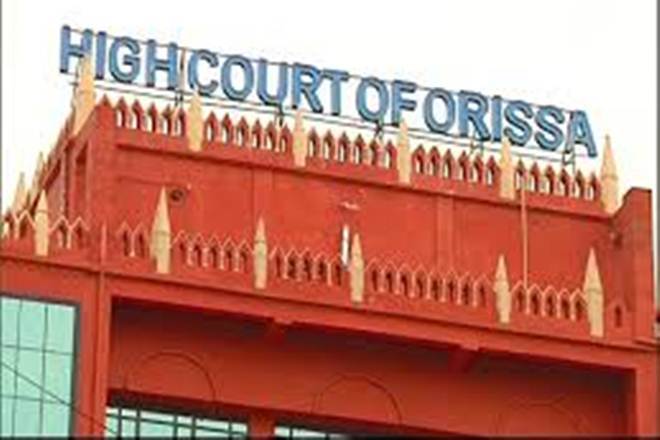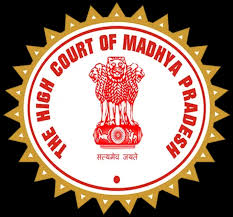1. THE opposite parties appeal.
2. THE facts of the case are as follows : THE complainant and his wife are covered by a medi claim policy with the second opposite party which he started in Calcutta several years ago and which he continued in Pondicherry from 19.5.1992. He did not make any claim till 1994 during which period he claimed Rs. 16,062/- for the treatment of his wife which was settled on 23.8.1996. THEreupon the opposite parties by letter dated 31.10.1996 cancelled the policy and asked the complainant to get back the amount of premium for the remaining period which was to come to an end on 18.5.1997. THE complainant approached the District Forum for a direction to the continuance of the policy.
The opposite parties placing reliance on Clause 3.11 of the contract of insurance contended that it has every right to cancel the policy. For cancelling the policy of the complainant the opposite parties put forth a very curious reason. It stated that from 1994 to 1997 the expenditure for the opposite parties was Rs. 32,406/- whereas the total premium collected was only Rs. 8,671/-. So the claim ratio was 373.68% adverse claim for the Company.
The District Forum placing reliance on the decision of the National Commission in Life Insurance Corporation v. Sri Bavanam Srinivasa Reddy (First Appeal 79/90 dated 5.6.1991) found that unilateral repudiation of a contract by an Insurance Company is wrong and is a deficiency in service and accordingly passed the following order :
"The opposite party shall : (a) immediately restore the Medi-claim Policy No. 48 711002 02561 which is unilaterally cancelled from 3.10.1996 and settle any medical claim made or is to be made by the complainant and his wife during the period of policy from 19.5.1996 to 18.5.1997; (b) renew the said policy when it has fallen due for renewal on 18.5.1997; (c) jointly and severally pay a compensation of Rs. 5,000/- for the mental agony caused to the complainant and his wife; and (d) pay a cost of Rs. 300/- to the complainant. (e) This shall be executed within 2 weeks from the date of the receipt of this order failing which the amount of compensation and costs shall bear interest @ 12% p.a."
3. AGGRIEVED by that order the opposite parties have filed this present appeal.
The learned Counsel for the appellants would contend that the District Forum had no jurisdiction in respect of the continuance of the policy, since no payment was made in respect of the period starting from 18.5.1997. In order to justify the cancellation of the policy he placed again reliance on Clause 3.11 of the Terms and Conditions of the policy.
4. TO deal with these points it is necessary to reproduce Clause 3.11 of the Terms and Conditions of the policy which reads as follows :
"3.11. The policy may be renewed by matual consent. The Company shall not however be bound to give notice that it is due for renewal and the Company may at any time cancel this policy by sending the insured 30 days'' notice by registered letter at the insured''s last known address and in such event the Company shall refund to the Insured a pro-rata premium for unexpired period of insurance. The Company shall, however, remain liable for any claim which arose prior to the date of cancellation. The Insured may at any time cancel this Policy and in such event the Company shall allow refund of premium at Company''s short period rate only provided no claim has occurred upto the date of cancellation".
It is true that usually parties are bound by the terms of a contract between them. Even in ordinary contracts coming before the Civil Courts, clauses against fundamental principles of public policy will not be given effect to. The machinery under the Consumer Protection Act has a greater responsibility. Any clause of the contract providing a service to a consumer wilI have to be assessed by the machinery and any exorbitant clause which will be highly detrimental to the consumer cannot be given effect to. With this principle in mind let us turn to the impugned clause. It relates to an insurance policy for health and thereby to the life of a person. It is of greatest importance for him. When a person wants to get insured for health, he naturally aspires for having it for the whole life and the need for insurance grows year after year. Therefore once a Company has accepted to insure a person, it has to continue the insurance, unless the insured person does not pay his premium.On the other hand if an insurance policy for medi-claim is discontinued by one Insurance Company, the insured will find it difficult to get insurance from another Company. As age grows the difficulty increases. So putting an end unilaterally to the policy by the Company will place the concerned person in a sad situation, it is against the very principle of medicare, and will put the concerned person in a situation repugnant to the whole scheme of the Consumer Protection Act. Therefore, the provisions in the Clause 3.11 giving to the Company the right to cancel the insurance or to refuse to renew the insurance cannot be given effect to unless the Insurance Company has got valid reasons.
In this case the only reason put forth is that the claim ratio is adverse to the Company. It is well known when there are several insured persons there will be persons with adverse ratio and other with positive ratio for the Company. If the Insurance Company wants to eliminate all those having adverse ratio and wants to keep with that only those having positive ratio that will not be an Insurance Company, that will be only a Company of profits enriching itself without cause. Therefore .we have no hesitation in holding that the Company was not justified in refusing the renewal of the proposal. It is open to the Company to modify the impugned clause in the proper manner as guided by the order of the District Forum. 10 The learned Counsel for the opposite parties contended however that the District Forum would not have jurisdiction for a direction to render the policy in respect of the period beyond 18.5.1997 because no premium was paid. We have already held that a medi claim policy will continue unless rescinded for valid reasons. If the policy is to continue the premium for further period is deferred payment as contemplated in the Act under Section 2(d)(ii). Therefore the complainant will well be a consumer within the definition of the Act. 11. It was next contended that there was no need for the District Forum to give a direction to renew the policy after 18.5.1997 because the matter did not arise as on 29th April. 1997. The decision of the District Forum is based on the fact that on account of cancelling the insurance the Company has decided not to renew. Therefore, the cause of action has already arisen. If the Company has come forward to say that it will renew the policy from 18.5.1997, the District Forum would not have given such a direction. It is stated by the complainant that premium for the period from 18.5.1997 has been tendered by way of a local cheque trice, the learned Counsel for the appellants would state that the matter pending for disposal of the case. 12. It was lastly contended by the learned Counsel for the appellants that the amount of compensation of Rs. 5,000/- was on the high side. On the contrary the complainant has stated that it was not adequate. Compensation as per Section 14 of the Act is due only in respect of any loss or injury caused by the opposite party by way of negligence. In computing the compensation one has to take into account the amount of negligence and the quantum of the loss or injury sustained. In the present case the Company cannot be said to have been highly negligent. They were on the contrary labouring under the misconception that Clause 3.11 was a universal shield for them. Therefore, there is room for reducing the amount of compensation. 13. In the result, the appeal is allowed in part and the amount of compensation is reduced to Rs. 2,500/- and the rest of the order of the District Forum will stand. No cost. Appeal partly allowed.

